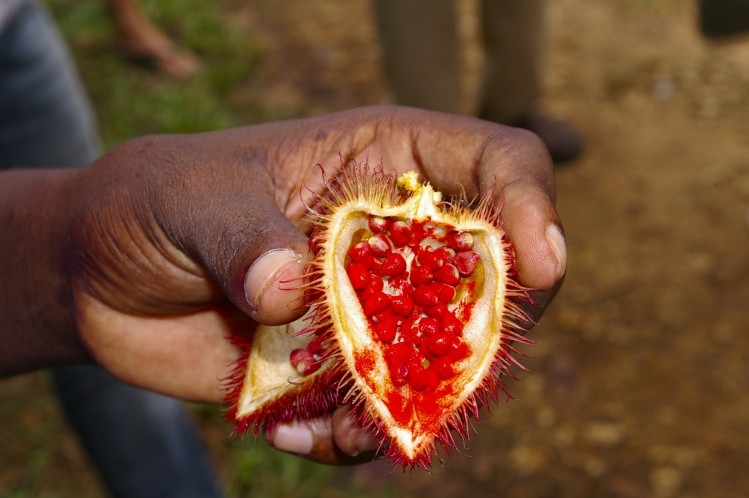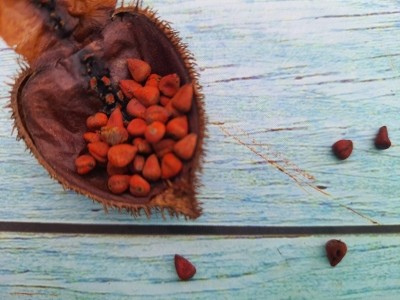Annatto tocotrienol may help manage blood sugar: RCT

Data published in Phytotherapy Research is reportedly the first to show that 24 weeks of supplementation with the annatto-derived vitamin E form led to significant improvements in glycemic control and markers of inflammation and oxidative stress in diabetics, which have previously been reported in animal studies.
Vitamin E forms
Vitamin E is a family of eight separate but related molecules: four tocopherols (alpha, beta, gamma, delta) and four tocotrienols (alpha, beta, gamma, delta). Tocotrienols are derived from three major sources, including rice, palm and annatto.
The new study used annatto tocotrienols from DeltaGold, which is free from tocopherol, and was manufactured by US-based manufacturer American River Nutrition.
Commenting on the research, Dr. Barrie Tan, President of American River Nutrition, said: “For the first time, tocotrienol has been shown to reduce functional insulin secretion and successfully manage blood sugar via multiple avenues, thereby improving T2DM hyperglycemic control.”
“It is well-known through previous clinical trials that tocopherol-free tocotrienol controls lipidemia, inflammation, and oxidative stress. Seeing these benefits extend to diabetes is not entirely unexpected, but remarkable nonetheless,” added Dr Tan.
The study
The Pakistan-based scientists recruited 110 type 2 diabetics to participate in their randomized, double-blind, placebo-controlled trial. Participants were randomly assigned to receive either 250 mg/day of delta-tocotrenols (DeltaGod) or placebo for 24 weeks. All of the subjects were instructed to maintain their use of an oral hypoglycemic agent and to continue their diabetic diets and to exercise regularly.
The results showed that, at the end of the study, HbA1c, a measure of how well controlled the blood sugar is, was successfully reduced from 8.3% to 7.8%. This is approaching the 7% threshold at which diabetes complications can be delayed or prevented. On the other hand, there was no change in HbA1c levels in the placebo group which remained at 8.4%.
The researchers also reported significant reductions in fasting blood glucose levels (6.8%), insulin (7.6%), and the Homeostatic Assessment of Insulin Resistance (HOMA-IR; 13.1%) in the tocotrienol group. These biomarkers remained unchanged in the placebo group.
In addition to improved glucose control, levels of inflammatory markers high-sensitivity C-reactive protein (hs-CRP), IL-6, and TNF-alpha dropped by 10%, 15.9%, and 13.7%, respectively, which while no such improvements were observed in the placebo group.
Oxidative stress, measured as malondialdehyde (MDA), was also lowered by 9%. The placebo group experienced no changes.
The researchers also found that delta-tocotrienol helped regulate diabetes-associated circulatory micro-ribonucleic acids (miRNAs). MiRNAs are 22 nucleotides containing small noncoding RNAs. Certain ones regulate glucose metabolism, inflammation, and oxidative stress. In the trial, miRNA-34a and miRNA-21 were downregulated which led to a reduction in inflammation and oxidative stress. MiRNA-126 and miRNA- 132 was upregulated which suggest their regulation in inflammation and oxidative stress.
Improvements in blood lipid levels were also found for the tocotrienol group, with triglyceride levels dropping by 10.3% with only a 0.9% change in the placebo group. Total cholesterol and LDL cholesterol levels in the tocotrienol group were reduced by 7.2% and 8.5%, with little to no change in the placebo group.
“This supplementation is safe without having any adverse effects,” wrote the researchers. “Thus, supplementation of [delta-tocotrienols] may be useful in the control and prevention of long-term diabetic associated complications.”
Source: Phytotherapy Research
Published online ahead of print, doi: 10.1002/ptr.7113
“Effects of delta-tocotrienol supplementation on Glycemic Control, oxidative stress, inflammatory biomarkers and miRNA expression in type 2 diabetes mellitus: A randomized control trial”
Authors: W. Mahjabeen, et al.















